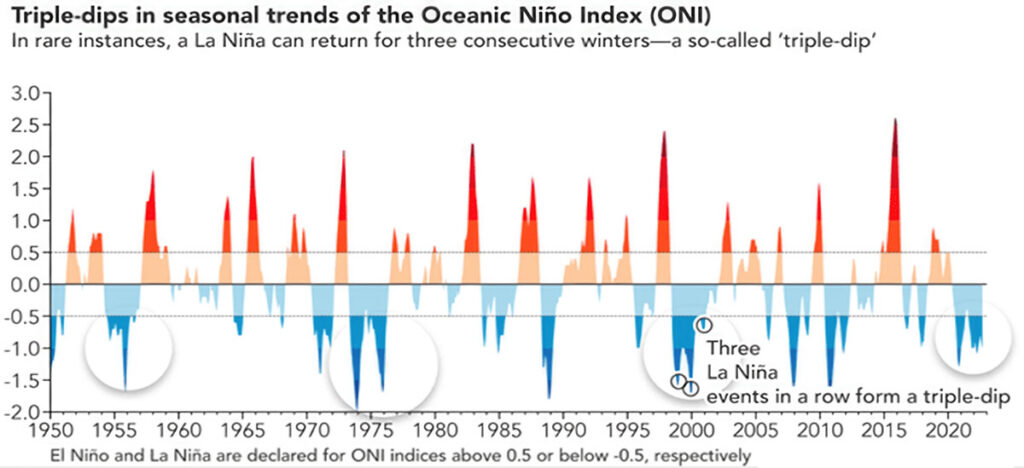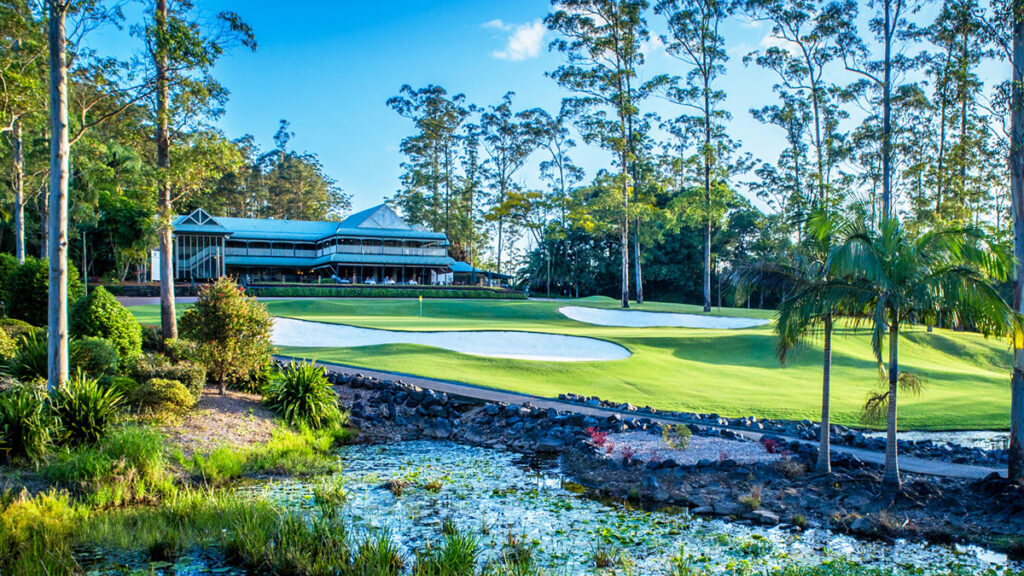With another El Niño event bearing down on Australia, it may be time for golf club managers to revise their water management approach.
In a recent article CSIRO article (Expert Commentary: 2023/24 El Niño for Australia), it was noted that the Bureau of Meteorology has announced that we can expect to move out of the current neutral phase of the El Niño-Southern Oscillation (ENSO). We have been in a neutral phase of ENSO since the “triple-dip” La Niña over three consecutive years ended earlier this year.
The bureau’s recently released El Niño ‘alert’ follows climate model forecasts indicating there is approximately a 70 per cent chance of El Niño forming in 2023.
So, what does this mean? Common changes to weather during El Niño in Australia most likely will deliver reduced rainfall, warmer daytime temperatures, increased risk of extreme heat, increased bushfire danger and a prolonged drier period.
Specific regions in Australia that are particularly susceptible to drought during El Niño events include parts of eastern and south-eastern Australia, such as New South Wales, Victoria and Queensland. These regions have a higher likelihood of experiencing reduced rainfall and increased temperatures during El Niño episodes, which can exacerbate drought conditions.
El Niño can influence the distribution and population dynamics of pests and diseases that affect turf. Warmer temperatures and changes in precipitation patterns can create favourable conditions for the proliferation of certain pests, such as insects and fungi that can lead to increased turf damage.

One way to mitigate the impacts of El Niño is through effective water management. This involves implementing measures such as water conservation, storage and distribution systems that can help ensure water quality during periods of low rainfall.
“That’s where the Sports Turf Solution by Nano Bubble Technologies (NBT) gives you the edge,” says Graham Dight, NBT’s product and service manager.
“The science of nanobubble oxygen has been around for many years, however the applications of the technology were previously limited due to engineering challenges in creating a nanobubble with a constant size and density,” he explains. “After years of research and development, the team at NBT has developed a market-leading nanobubble generator, specifically designed for turf applications.”
Dight adds that nanobubbles infuse oxygen in the water, delivering the gas directly to the roots of the plant when applied. “This is performed in conjunction with ozone, which operates to treat the water at the source to mitigate the spread of pathogens and other diseases. Ozone kills fungi, bacteria and viruses on contact. After the ozone has been used it reverts to oxygen, which further increases the quality of the water. This is a critical aspect of the overall performance of the NBT treatment system.”
• For more information, visit https://nbtsportsturfsolutions.com.au/




